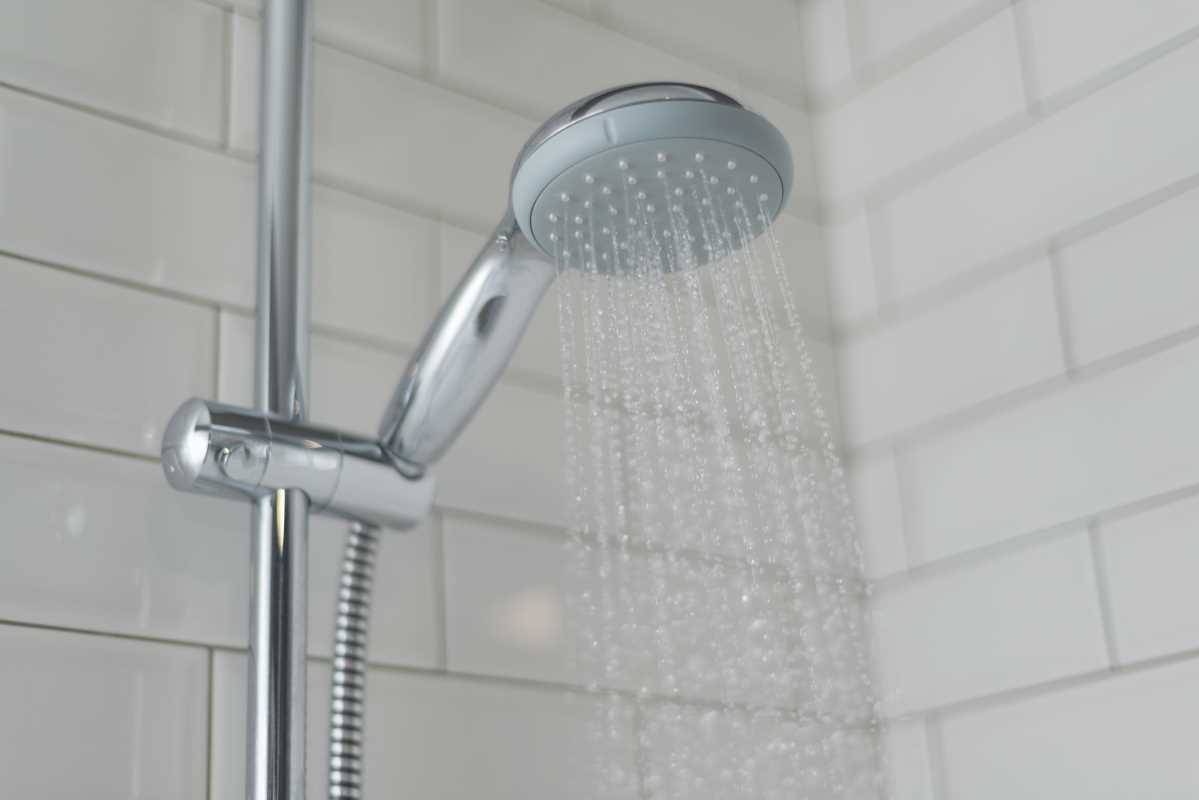The idea of willingly stepping into a stream of icy water might sound like a form of self-punishment, not a wellness hack. Most of us prefer a warm, comforting shower to start or end the day. Yet, a growing number of people are embracing the chill, claiming that a regular cold shower can do wonders for their mental and physical health. There's some interesting science to back up these claims, particularly when it comes to boosting your mood.
What Happens to Your Body During a Cold Shower?
That initial blast of cold water triggers a series of rapid physiological responses. It's a mild shock to your system, and your body immediately kicks into survival mode. This isn't as scary as it sounds; in fact, this controlled stressor is where the benefits begin.
Your blood vessels constrict, a process known as vasoconstriction. This reaction redirects blood flow away from the surface of your skin and toward your vital organs to keep them warm. Your heart rate and breathing initially speed up as your body works to cope with the sudden temperature drop. This whole experience activates your sympathetic nervous system, the same system responsible for your "fight or flight" response. It's like a quick, controlled jolt to your internal engine, waking everything up in a matter of seconds.
The Brain Science: How Cold Water Boosts Your Mood
The most compelling reason to brave the cold might be its powerful effect on your brain chemistry. The mood-boosting benefits of cold showers are linked to how your brain responds to the intense sensory input.
A Rush of "Feel-Good" Chemicals
The shock of cold water sends an overwhelming number of electrical impulses from your peripheral nerve endings to your brain. This intense stimulation is thought to trigger the release of specific neurotransmitters, which are the chemical messengers that regulate your mood.
- Norepinephrine: This is a key player. Cold exposure has been shown to significantly increase the levels of norepinephrine in your bloodstream and brain. Norepinephrine acts as both a hormone and a neurotransmitter, playing a key role in focus, attention, and mood. Low levels are often associated with depression, so a natural boost can have an antidepressant-like effect. That feeling of alertness and clarity after a cold shower is largely thanks to this chemical.
- Dopamine: Often called the "motivation molecule," dopamine is part of your brain's reward system. The jolt of a cold shower can cause a prolonged increase in dopamine levels. This surge contributes to feelings of pleasure, focus, and motivation, helping you start your day with a more positive and driven mindset.
Building Mental Resilience
Beyond the immediate chemical boost, regularly exposing yourself to the discomfort of a cold shower can build mental toughness. It's a practice in voluntary hardship. Each time you intentionally step into the cold and regulate your breathing to stay calm, you are training your nervous system to handle stress more effectively.
This practice, known as hormesis, is the idea that small, controlled doses of stress can make the body and mind stronger and more resilient over time. You are teaching your brain that you can endure discomfort and come out stronger on the other side.
Other Potential Health Benefits of Cold Showers
While the mood boost is a major draw, cold showers are linked to a range of other potential physical benefits that can contribute to your overall sense of well-being.
- Improved Circulation: The process of vasoconstriction followed by vasodilation (when your body warms up again and blood vessels expand) is like a workout for your circulatory system. Improved circulation helps deliver oxygen and nutrients more efficiently throughout your body.
- Reduced Muscle Soreness: Many athletes use ice baths after intense training to reduce inflammation and muscle soreness. A cold shower can have a similar, albeit milder, effect by constricting blood vessels and decreasing inflammatory activity.
- Enhanced Immune Response: Some studies suggest that regular cold exposure may stimulate the production of white blood cells, which are the cells that fight off infections. This could potentially lead to fewer sick days.
- Healthier Skin and Hair: Hot water can strip your skin and hair of their natural oils, leaving them dry. Cold water, on the other hand, helps to tighten pores and cuticles. This can lock in moisture, making your skin look healthier and your hair appear shinier.
How to Start Taking Cold Showers Without the Dread
The idea of going from a warm, cozy shower to an arctic blast can be intimidating. The key is to start slowly and allow your body to adapt. You don't have to go all-in from day one.
The Contrast Shower Method
This is the easiest and most popular way to begin.
- Start your shower as usual with warm water.
- Toward the end of your shower, gradually turn the temperature down to cool, then to cold.
- Stay under the cold water for 15-30 seconds to start. Focus on controlling your breathing; take slow, deep breaths to manage the initial shock.
- You can finish by turning the water back to warm for a moment before you get out.
Gradually Increase Your Time
As you get more comfortable, you can start to increase the duration of the cold portion of your shower. Work your way up to a minute, then two, and so on. You might find that you eventually enjoy starting your shower cold or taking the entire shower with cold water.
Focus on Your Breath
Your initial instinct will be to gasp and take short, shallow breaths. Fight this urge. Making a conscious effort to take long, slow, controlled breaths sends a signal to your nervous system to calm down. This is the most important skill for mastering the cold shower experience.
By incorporating this simple practice into your routine, you can tap into a powerful, natural tool for boosting your mood, sharpening your focus, and building mental resilience. The science of cold showers shows that a few minutes of discomfort can lead to lasting benefits, proving that sometimes the most challenging habits are also the most rewarding.
 (Image via
(Image via




